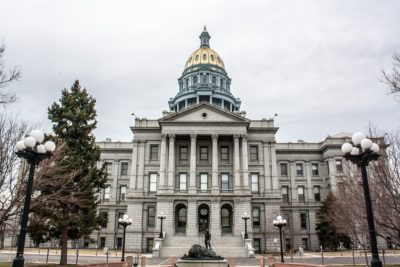The Colorado Judicial Branch Committee will meet in closed session on Friday, Jan. 17 to consider a proposal for a new state-wide standard to govern the suppression of judicial records in criminal cases. Open records are considered a lynch-pin of the ability of the press to report on information in a manner that informs the public and maintains First Amendment rights. Court orders to close those documents lessens government transparency.
Notice of the meeting was sent to all Colorado Press Association members, of which Ark Valley Voice is a member, by the Colorado Freedom of Information Coalition.
A draft of the proposed standard posted online, indicates that the 14-member Rules of Criminal Procedure Committee hasn’t yet settled on how weighty an interest must be to justify keeping a court record from public view, or only allowing the public to see a redacted copy.
The committee will look at four options set out in the draft: Should the interest be “compelling,” “significant,” “substantial” or “overriding” that would keep the records from view? The draft rule includes the statement that a court order to limit public access must explain how making court records inaccessible would serve a higher interest than the public right to know; such as a defendant’s right to a fair trial or the safety of the victim.
“This is CPA’s biggest legislative priority this session,” explains Colorado Press Association CEO Jill Farschman during a media-legislative meeting at the Colorado State Capital on Thursday, attended by Ark Valley Voice.
“We want a consistent standard. We’re the only state in the country that doesn’t have open records, open hearings on criminal cases related to things like people being held on death row,” said editor and executive director of The Colorado Independent Susan Greene, a CPA board member, expressing the hope for better records access by the public and the media. “Right now motions are shrouded in secrecy.”
The draft rule would restrict public access to court records and any subsequent hearing on the matter; automatically closing the initial hearing and follow-up hearings to the public. Suppressed court records would then only be available to the court, parties in the case and the attorneys of record. Anyone else, including the media, would need to obtain a court order to get access.
If that committee votes to recommend a new rule, the proposal will be submitted to the Colorado Supreme Court and a public hearing would most likely occur before any ruling would be adopted. The Rules of Criminal Procedure Committee includes judges, prosecutors and defense attorneys.
But a bill likely to be introduced for this 2020 sate legislative session would essentially follow American Bar Association guidelines. It would require a judicial finding of a “compelling” state interest before justifying the denial of public access to judicial records. This would need to be paired with an additional finding that no reasonably available alternative means exists to protect the public’s interest that the information be accessible.
This morning, Jeff Roberts, CFOIC Executive Director, published a short article about the proposed draft, available here:
Colorado judicial branch posts draft of proposed rule on suppression of court records








Recent Comments